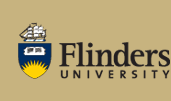
The Graduate Certificate in Child Well-being and Protection is an 18-unit program offered by the Faculty of Social and Behavioural Sciences on a fee-paying basis in internal mode. The course is normally completed in one semester full-time or equivalent part-time.
The majority of students will be drawn from social work but those with other practice backgrounds, in youth work, teaching, nursing, mental health, and counselling will also be eligible to apply.
Students accepted into the Master of Social Work program would normally receive 13.5 units of credit for topics successfully completed within the Graduate Certificate upon application.
Applicants must normally hold an approved degree or equivalent qualification from an approved tertiary institution. However, the Faculty Board may, under certain circumstances and subject to specific conditions such as work experience, admit others who can show evidence of fitness for candidature.
The course is designed to enhance the knowledge and practice skills of practitioners who work with children and adolescents, especially in the child protection area. Students will gain knowledge about the many influences upon children&##39;s safety and well-being, and the impact of and children&##39;s responses to major life events and transitions.
Throughout the course, the focus will be the perspective of children and young people, with students acquiring the knowledge and skills necessary to work effectively with this client group, to interview children and to consider the child&##39;s perspective (consistent with the child&##39;s age, maturity and circumstances) in case-planning. Child protection legislation and research around Australian child protection practices will be emphasised.
It is expected that students who complete this course will be able to:
To qualify for the Graduate Certificate in Child Well-being and Protection, a student must complete 18 units with a grade of P or NGP or better in each topic, according to the following program of study.
Except with permission of the Faculty Board:
SOAD9211 Child Welfare (4.5 units)
SOAD9212 Complexities in Child Protection (4.5 units)
SOAD9216 Interventions with Children and Young People (4.5 units)
SOAD9221 Professional Practice Project (4.5 units)
CRICOS Provider: 00114A | Updated: 13 Aug, 2010